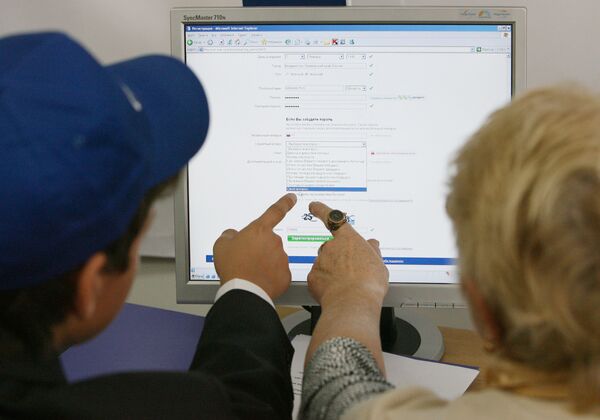WASHINGTON, December 19 (RIA Novosti) - The US government on Wednesday announced its first major overhaul to online privacy laws that make it harder to track children and gives parents more control over data collected about their kids online.
The Children’s Online Privacy Protection Act of 1998 (COPPA) had not been previously updated since its inception.
“Since then, we have seen the rise of smartphones, tablets, social networks, and more than a million apps,” said Jon Leibowitz, chairman of the Federal Trade Commission (FTC), the government agency responsible for enforcing the policy.
“And while all of these advances have enriched our lives, enhanced educational opportunities, and grown our economy, they also exacerbate the privacy risks to children,” he said.
Under the revisions, businesses would now be required to obtain parental consent before collecting photos, videos, and location information from children ages 13 or younger. Children’s IP addresses and mobile device identifiers would also be protected under the act.
The commission also closed a loophole that allowed third-party apps to collect information about children through plug-ins on websites and mobile apps.
Children’s privacy activists applauded the changes, but said they were long overdue.
The new rules mean “parents- not social networks or marketers- will remain the gatekeepers when it comes to their children’s privacy not only online, but also on phones,” said Jim Steyer, chief executive of the advocacy group Common Sense Media.
The revised policy also introduced alternative methods for tech companies to secure parental consent including electronic scans of signed parental consent forms and video-conferencing.
But according to media reports, the new FTC rules are not nearly as stringent as what was originally proposed, due in part to heavy lobbying from the technology and media industries.
Hundreds of tech and media companies, including Facebook and Disney, opposed various aspects of the revisions, arguing the changes could obstruct economic growth, suppress innovation and limit the number of online games and educational programs available for kids.
"The industry definitely did the best it could to lobby to water down the FTC's proposed updates,” said Steyer, who described the in-fighting over the policy as an attempt to skirt responsibility.
“In the end, no one in the industry at all was willing to step up and take responsibility for protecting kids," said Steyer. "Fortunately, the FTC struck an appropriate balance."


